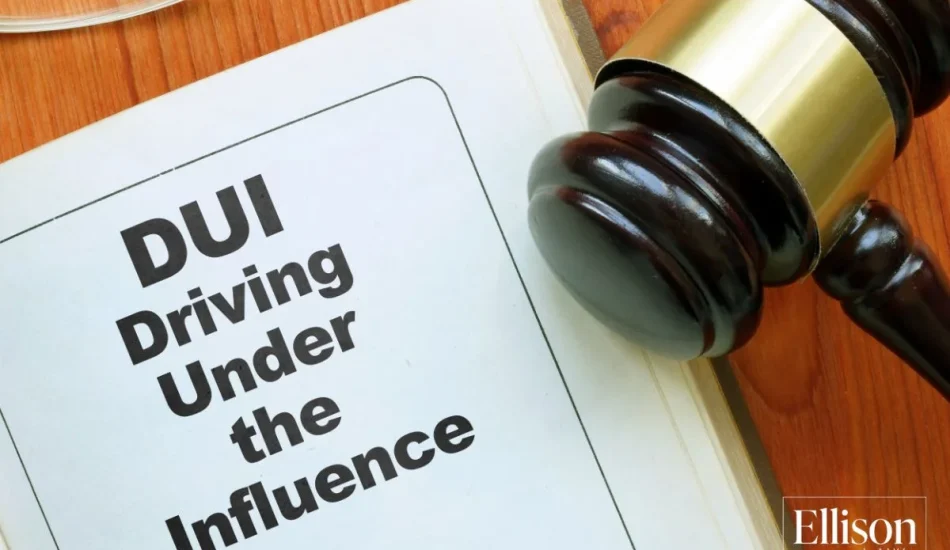Driving Under the Influence (DUI) offenses carry significant legal consequences, but the severity of penalties can vary greatly between first-time and repeat offenses. Understanding these differences is crucial for anyone facing DUI charges. This article delves into the legal distinctions, penalties, and considerations for both first-time and repeat DUI offenses.

Legal Differences Between First-Time and Repeat DUI Offenses
First-Time DUI Offenses
First-time DUI offenses are typically treated less severely than repeat offenses, but they still carry serious legal repercussions. Key aspects of first-time DUI offenses include:
- Standard Penalties: First-time offenders often face fines, license suspension, mandatory DUI education programs, and possibly community service.
- Legal Thresholds: The legal blood alcohol concentration (BAC) limit is usually 0.08%. Exceeding this limit can result in a DUI charge.
- Judicial Discretion: Judges may exercise more leniency with first-time offenders, especially if there are no aggravating factors like high BAC levels, accidents, or minors in the vehicle.
Repeat DUI Offenses
Repeat DUI offenses are treated more harshly due to the perceived increased risk to public safety. Key distinctions for repeat offenders include:
- Escalating Penalties: Repeat offenders face significantly higher fines, longer license suspensions, and potentially mandatory jail time.
- Increased Scrutiny: Courts and prosecutors often have less tolerance for repeat offenders, leading to stricter sentencing.
- Aggravating Factors: Previous DUI convictions can lead to felony charges, especially if the offenses occurred within a certain time frame (commonly five to ten years).
Penalties for First-Time DUI Offenses
Fines and Fees
First-time DUI offenders typically face fines ranging from a few hundred to several thousand dollars. Additional fees may include court costs, probation fees, and fees for mandatory education programs.
License Suspension
A first-time DUI offense often results in a license suspension of six months to a year. Offenders may be eligible for a restricted license that allows limited driving, such as to work or school.
DUI Education Programs
Most first-time offenders are required to complete a DUI education or alcohol treatment program. These programs aim to educate offenders about the dangers of drunk driving and encourage behavioral changes.
Community Service and Probation
Community service and probation are common penalties for first-time DUI offenders. Probation typically involves regular check-ins with a probation officer and adherence to specific conditions, such as abstaining from alcohol.
Penalties for Repeat DUI Offenses
Higher Fines and Longer Jail Time
Repeat offenders face substantially higher fines, often ranging from several thousand to tens of thousands of dollars. Jail time is also more likely and can range from a few days to several years, depending on the number of prior offenses and other factors.
Extended License Suspension
License suspension periods increase with each subsequent DUI offense. Repeat offenders may face suspensions of several years or even permanent revocation of their driving privileges.
Mandatory Ignition Interlock Devices
Many jurisdictions require repeat offenders to install ignition interlock devices (IIDs) on their vehicles. These devices prevent the car from starting if the driver has been drinking.
Felony Charges
Multiple DUI offenses can result in felony charges, especially if they occur within a specific time frame. Felony DUI convictions carry severe penalties, including longer prison sentences, larger fines, and more extensive long-term consequences.
Aggravating Factors and Their Impact
High BAC Levels
Both first-time and repeat offenders face harsher penalties if their BAC level significantly exceeds the legal limit. High BAC levels are considered aggravating factors that demonstrate a greater degree of impairment and risk.
Accidents and Injuries
DUIs involving accidents, especially those resulting in injuries or fatalities, lead to more severe charges and penalties. These cases may result in felony charges, longer prison sentences, and substantial financial restitution to victims.
Presence of Minors
Driving under the influence with minors in the vehicle is an aggravating factor that increases the severity of charges and penalties. Courts view this as an endangerment of child safety and impose stricter consequences.
Legal Considerations and Defense Strategies
Legal Representation
Regardless of whether it is a first-time or repeat offense, securing competent legal representation is crucial. An experienced DUI attorney can navigate the complexities of the legal system, challenge evidence, and negotiate for reduced penalties.
Defense Strategies
Common defense strategies in DUI cases include challenging the accuracy of BAC testing methods, questioning the legality of the traffic stop, and presenting mitigating circumstances. Effective defense can lead to reduced charges or dismissal of the case.
Rehabilitation and Treatment
Demonstrating a commitment to rehabilitation and treatment can positively influence the court’s perception of the offender. Participation in alcohol treatment programs, counseling, and support groups can show a willingness to change and reduce the likelihood of reoffending.
Conclusion
The impact of first-time versus repeat DUI offenses varies significantly, with escalating penalties and legal consequences for repeat offenders. Understanding these differences, the associated penalties, and available defense strategies is essential for navigating DUI charges. Whether facing a first-time or repeat offense, securing experienced legal representation and considering rehabilitation options can play a critical role in achieving the best possible outcome.









